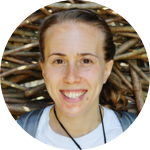About This Project
Many students experience unhealthy disturbances in their sleeping patterns. My project aims to understand how these disturbances are influenced by teaching methods in schools and lifestyle choices at home. Students from each of the 10 countries will be surveyed and asked about amount of sleep, amount of time spent on homework and other daily activities and how that affects mood. Statistics will be utilized to explore correlations between these different factors.
Ask the Scientists
Join The DiscussionWhat is the context of this research?
A lot of research has been done on sleep and the effects of sleep deprivation as well as the relationship between sleep and mental disorders. However, it is incomprehensible why schools, parents and even teens themselves continue to over schedule their days by taking on an unmanageable amount of work, leading to sleep cycle delays and eventually, exposure to the effects of sleep deprivation. Research is needed to really understand the reasons that lead to a severe lack of sleep within the student body as well as the international differences in sleeping habits within teens. This study will bring an overall perspective to the reasons why teens are sleep deprived and the effects that this deprivation is bringing upon their everyday life.
What is the significance of this project?
A lot of research has been done on the science of sleep and the effects of sleep deprivation on mental performance. However, research is needed to really understand the reasons that lead to a severe lack of sleep within the student population as well as the international differences in sleeping habits within teens. A replenished brain after a good sleep is active, relaxed, and way happier than an exhausted brain. Analyzing the sleep patterns of different countries will hopefully reveal trends between academic focus and sleeping habits within the students. It will also bring an overall perspective to the reasons why teens are sleep deprived. Solutions to the problem of chronic sleep deprivation might be proposed and implemented as well.
What are the goals of the project?
I will create a survey to assess sleeping patterns, including; the amount of sleep, naps, bedtimes and wake times.I will ask participants how important sleep is to them and if their parents have spoken to them about sleep habits. The survey will highlight which sleep deprivation symptoms are experienced by asking students to rate how prevalent the symptom is in their everyday lives.Results will show the correlation between the variables of happiness, sleep, and academic involvement. By asking students to rate their overall mood, the amount of sleep, time spent on homework or extracurriculars, and academic success, a correlation between the factors could be analyzed. This survey would be distributed through Instagram and directly sent to schools for completion.
Budget
I will survey one school in 10 countries: the United States, Colombia, Japan, Brazil, Panama, Italy, Bangladesh, France, China, and South Africa. We will offer schools $100 to recruit 100 students to take the survey. If a school is unable to accept the money, we will use those funds to collect data from another school. We will also purchase Instagram advertisements to help spread the word to individuals.
Advertisement on Instagram: $6.70. $600 for 90 advertisements
Total: $1776 (USD)
Endorsed by
 Project Timeline
Project Timeline
I created an Instagram account about sleep this summer and will be using the account to collect surveys. I will create the survey between September and October and post advertisements on the Instagram account. I will also contact schools between the months of November and December. I will advertise the survey between November and December. We will then analyze the results and write a final paper to be shared with all backers.
Oct 29, 2019
Project Launched
Oct 31, 2019
Make Survey
Dec 31, 2019
Contact Schools
Jan 31, 2020
Receive Data
May 30, 2020
Share information gathered and raise awareness about findings
Meet the Team
Violeta González
I am a student at Princeton High School that participates in a research program that hopes to discover sleep patterns on teens around the world. My goal for my research is that it will bring a solution to reduce teen sleep deprivation so that students can have a healthier lifestyle. The reason behind this project is that I think many people are unaware of how many people suffer from sleep deprivation and how greatly they would benefit from good sleeping habits. Teens, especially, need to sleep in order to face challenges everyday and in order to help teens reach a healthy sleep routine, the reasons that lead to sleep deprivation should be analyzed so that an end could be brought to them.
Additional Information
Works Cited
Andersen ML, Tufik S (2015) Sleep and the Modern Society. J Sleep Disord Ther 4:e131. doi:10.4172/2167-0277.1000e131
Boyle, Linda Ng et al. “Driver Performance in the Moments Surrounding a Microsleep” Transportation research. Part F, Traffic psychology and behaviourvol. 11,2 (2008): 126-136.https://www.ncbi.nlm.nih.gov/pmc/articles/PMC2808128/
Brain Games, National Geographic Series: Season 1 Episode 3 Film, Arsip. “Brain Games Season 06 Ep 03 - Sleep (2015) National Geographic Indonesia.” YouTube, YouTube, 22 Aug. 2017, www.youtube.com/watch?v=zO0rdVNhG78.
Chee, Michael W. L., et al. “Lapsing during Sleep Deprivation Is Associated with Distributed Changes in Brain Activation.” Journal of Neuroscience, Society for Neuroscience, 21 May 2008, www.jneurosci.org/content/28/21/5519.
Hershner, Shelley D and Ronald D Chervin. “Causes and consequences of sleepiness among college students” Nature and Science of Sleep vol. 6 73-84. 23 Jun. 2014, doi:10.2147/NSS.S62907 https://www.ncbi.nlm.nih.gov/pmc/articles/PMC4075951/
Klumpers UMH, Veltman DJ, van Tol M-J, Kloet RW, Boellaard R, Lammertsma AA, et al. (2015) Neurophysiological Effects of Sleep Deprivation in Healthy Adults, a Pilot Study. PLoS ONE 10(1): e0116906. https://doi.org/10.1371/journal.pone.0116906
Krystal, Andrew D. “Psychiatric disorders and sleep” Neurologic clinics vol. 30,4 (2012): 1389-413.https://www.ncbi.nlm.nih.gov/pmc/articles/PMC3493205/
Priest, Benoit, et al. “Microsleep during a Simplified Maintenance of Wakefulness Test A Validation Study of the OSLER Test.” Proceedings of the American Thoracic Society, 2001, www.atsjournals.org/doi/full/10.1164/ajrccm.163.7.2007028.
“Sleep Deprivation Alters Pupillary Reactivity to Emotional Stimuli in Healthy Young Adults.” NeuroImage, Academic Press, 11 Nov. 2008, www.sciencedirect.com/science/article/pii/S0301051108002263.
Vyazovskiy, Vladyslav V., et al. “Local Sleep in Awake Rats.” Nature News, Nature Publishing Group, 27 Apr. 2011, www.nature.com/articles/nature10009.
Project Backers
- 17Backers
- 35%Funded
- $616Total Donations
- $36.24Average Donation

